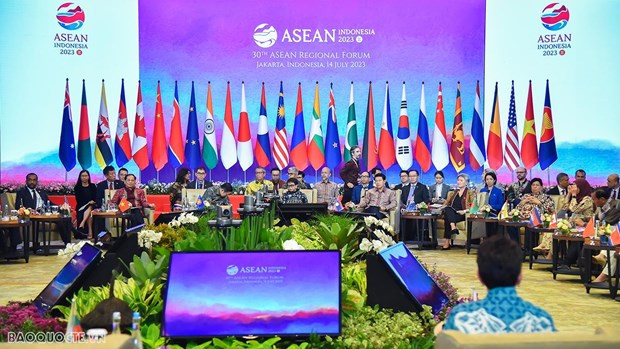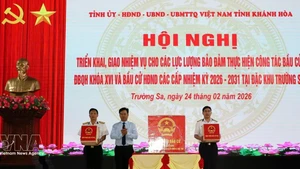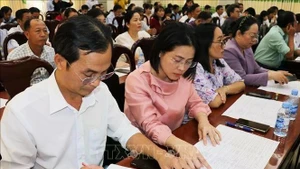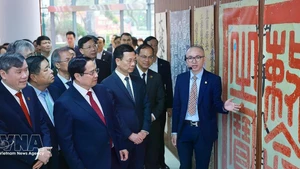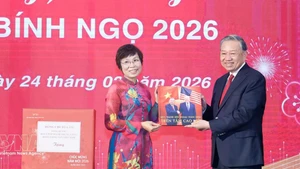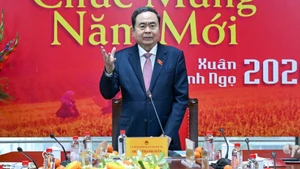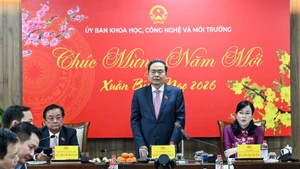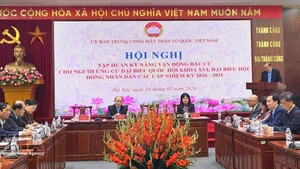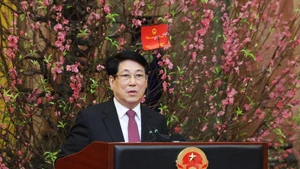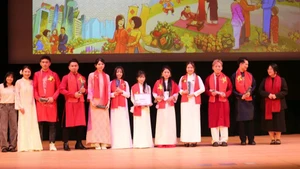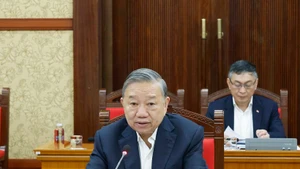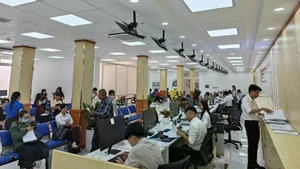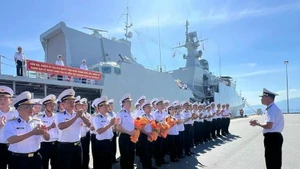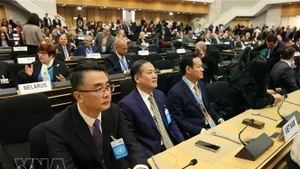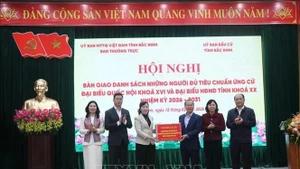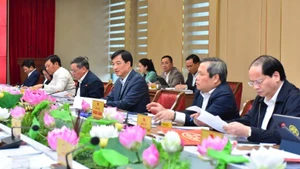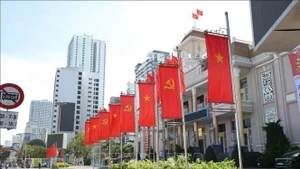The process of building ASEAN's common stance on the East Sea issue demonstrates consultation efforts and achievements, and affirms and promotes fundamental principles like peaceful settlement of disputes, and respect for international law and the 1982 United Nations Convention on the Law of the Sea (1982 UNCLOS), Son said.
The minister emphasised the need to ensure ASEAN's centrality, uphold objectives and principles of the ARF, form substantive agendas, promote the responsibility of member nations, and maintain a balanced and inclusive approach.
The culture of dialogue and consultation should be maintained and enhanced with ASEAN at the centre, thereby contributing to peace, security, stability, and prosperity in the region, he continued.
Son noted that over the past 30 years, through consultation, ASEAN has successfully built a common stance on the East Sea/South China Sea, with principles such as restraint, peaceful resolution of disputes, and respect for international law and the 1982 UNCLOS.
While committing to fully and effectively implementing the Declaration on the Conduct of Parties in the East Sea (DOC), ASEAN and China are working together towards a substantive, effective, and legally binding Code of Conduct in the East Sea (COC) in line with international law, including the UNCLOS, he said.
At the meeting, the participating countries reviewed the ARF’s operation in 2022-2023, and orientations in the time ahead, and exchanged views on regional and international issues of shared concern.
They affirmed the importance of the ARF as the leading forum in the region in promoting dialogue and cooperation in political-security issues, contributing to joint efforts in building trust and preventive diplomacy.
Given the complex, unpredictable situation, the minister agreed to step up the forum’s operation, and carry forward its values, vitality and adaptability to both opportunities and challenges at present and in the future.
The countries agreed to maintain cooperation in maritime security, disaster relief, cybersecurity, the fight against terrorism and transnational crimes, non-proliferation of nuclear weapons and disarmament, national defence, and peacekeeping.
They also approved a list of activities for 2023-2024. Vietnam will co-chair several ARF activities regarding the implementation of the 1982 UNCLOS, and the fight against terrorism, transnational crimes, and chemical, biological, nuclear, and radiological terrorism.
On this occasion, Son announced that Vietnam will co-chair the ARF Inter-Sessional Meeting on Disaster Relief for the 2024-2026 term with Bangladesh and Sri Lanka.
The meeting adopted a joint statement commemorating the 30th anniversary of the ARF, with Indonesia, Vietnam, China, Australia, and Canada as co-sponsors. The documents reaffirmed the leading role of ASEAN in the regional architecture, and commitments to promoting constructive dialogues, enhancing cooperation, and ensuring the active and full participation and contributions of member countries to the forum’s development.
The meeting took place within the framework of the 56th ASEAN Foreign Ministers’ Meeting (AMM-56). At the end of AMM-56 and related meetings, foreign ministers approved nearly 40 documents, including the AMM-56 joint communique.
